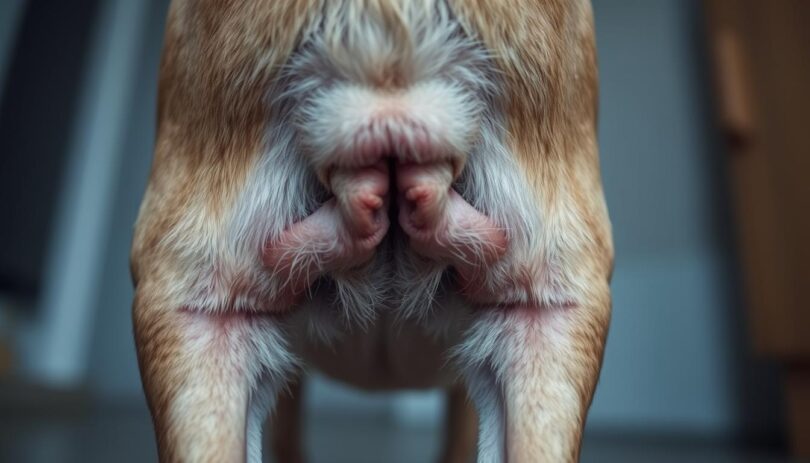Have you ever wondered why your dog sometimes experiences loose or watery stools? Diarrhea in dogs is more than just an unpleasant mess—it’s a sign that something might be amiss in your pet’s digestive system. While it’s a common issue, understanding its causes and symptoms is crucial for any responsible pet owner.
Diarrhea isn’t a disease itself but rather a symptom of various underlying conditions. It can stem from something as simple as eating the wrong food to more serious health problems. For instance, dietary indiscretion or exposure to toxins are common culprits. In some cases, it might signal an infection or even a chronic health issue.
It’s important to recognize when your dog’s diarrhea is a minor, short-term problem or a sign of something more serious. While mild cases often resolve on their own, persistent or severe diarrhea requires immediate veterinary care. Factors like the duration of symptoms, your dog’s age, and overall health play a significant role in determining the best course of action.
- Diarrhea in dogs can result from various causes, including dietary issues, infections, or toxins.
- Monitor your dog’s symptoms closely; seek veterinary care if diarrhea persists beyond 48-72 hours.
- A proper diagnosis is essential for effective treatment and a speedy recovery.
By understanding the signs and knowing when to act, you can help your furry friend feel better and prevent more serious complications. This article will guide you through the causes, symptoms, and practical steps to manage your dog’s diarrhea effectively.
Recognizing the Signs and Symptoms
Diarrhea in dogs can vary in severity and presentation, making it crucial for pet owners to recognize both the visual and behavioral signs. Common signs include loose, watery stools, which may appear suddenly or persist over time. Changes in your dog's behavior, such as lethargy or a lack of appetite, can also signal that something is amiss.
Identifying Common Symptoms
One of the most noticeable signs of diarrhea is the appearance of your dog's stool. If the stool is watery, loose, or has an unusual color, it could indicate a problem. Additionally, the presence of blood or mucus in the stool is a cause for concern and warrants immediate attention. Other symptoms to watch for include vomiting, dehydration, lethargy, and fever.
When to Monitor vs. Seek Emergency Care
While some cases of diarrhea may resolve on their own, others require urgent veterinary care. If your dog experiences persistent diarrhea, especially when accompanied by vomiting, lethargy, or dehydration, it’s important to seek professional help. Emergency situations include cases where your dog swallows a foreign object or shows signs of a blockage, such as severe abdominal distension or inability to pass stool.
Your veterinarian may perform a physical exam and diagnostic tests, such as stool analyses or blood work, to determine the underlying cause. Monitoring your dog’s behavior and appetite during a diarrhea episode is crucial. Documenting symptoms, such as the duration of diarrhea, the appearance of the stool, and any additional signs like vomiting or lethargy, will help your veterinarian provide an accurate diagnosis and appropriate treatment plan.
Understanding Dog Diarrhea: Types, Causes, and Diagnostic Steps
Gastrointestinal issues in pets can be distressing, especially when they involve loose stools. Diarrhea in dogs is not a disease itself but a symptom of various underlying conditions. It can be acute or chronic, each with different implications for your pet's health.
Types of Diarrhea
Diarrhea can be classified into four main types: osmotic, secretory, exudative, and rapid transit. Osmotic diarrhea occurs when water is drawn into the intestines due to substances that the body cannot absorb. Secretory diarrhea is caused by an overactive intestinal secretion. Exudative diarrhea involves inflammation, leading to the presence of blood or mucus. Rapid transit diarrhea happens when food moves too quickly through the intestines, preventing proper absorption.
Common Causes and Prevention
Dietary indiscretion, infections like parvovirus, and internal parasites are common causes. Sudden changes in diet or eating harmful substances can trigger episodes. Vaccinations and parasite prevention are crucial preventive measures. Ensuring your pet is up-to-date on vaccinations can help avoid infections that lead to diarrhea.
Diagnostic Steps
Veterinarians use various tests to identify the underlying cause. Blood work, stool samples, and imaging studies like X-rays or ultrasounds are common. In some cases, intestinal biopsies may be necessary for an accurate diagnosis. Understanding the root cause is essential for effective treatment.
By understanding the types, causes, and diagnostic steps, pet owners can better manage their pet's health. Early detection and proper care can prevent complications and support a speedy recovery.
How to Manage Dog Diarrhea at Home
Is your furry friend experiencing loose stools? While it's a common issue, knowing how to handle it at home can make a big difference. For mild cases, home care can be very effective.
Implementing a Bland Diet and Fasting
A 12- to 24-hour fast is often recommended to let the digestive system recover. After fasting, introduce a bland diet like boiled chicken and white rice. These foods are easy on the stomach and can help firm up stools.
At-Home Care Techniques and Hydration Tips
Keep your pet well-hydrated by offering plenty of water. You can also add a small amount of low-sodium chicken broth to make it more appealing. Monitor the amount of food given and gradually increase portions as they recover.
If symptoms don't improve within a day or two, it's time to consult your vet. With proper care, many mild cases can be managed safely at home.
Working with Your Veterinarian for Effective Treatment
When your pet's condition doesn't improve with home care, it's crucial to collaborate with a vet for a proper diagnosis and treatment plan. Veterinarians have the expertise and tools to address more severe cases effectively.
Understanding Diagnostic Procedures
Your vet will likely start with a physical exam and ask about your pet's symptoms. Diagnostic tests such as blood work or fecal exams help identify underlying issues like infections or parasites. In some cases, imaging studies may be necessary to rule out blockages or other serious conditions.
Medication, Fluid Therapy, and Treatment Options
Treatment depends on the root cause. Fluid therapy is common to correct dehydration, while medications might include antibiotics for infections or anti-parasitic drugs. The vet may also recommend a specific diet to aid recovery. In severe cases, hospitalization ensures close monitoring and timely intervention.
By working closely with your vet, you can ensure your pet receives the best care, leading to a speedy recovery and preventing future complications.
Final Tips for Supporting Your Dog's Rapid Recovery
Supporting your pet's recovery after a bout of loose stools requires careful attention to their diet and environment. To prevent future episodes, focus on identifying potential causes such as toxins or changes in their diet that might trigger issues.
Monitor your pet's internal recovery by watching for signs that their bowel function is returning to normal. If your pet shows persistent symptoms, consult your veterinarian to review any necessary medicine adjustments. Prevention strategies, such as maintaining proper sanitation and introducing dietary changes gradually, can help avoid recurrence.
When selecting your pet's food, opt for high-quality options that support digestive health. Introduce their regular diet slowly, mixing it with bland foods initially to ease their system back into normal eating. Keeping your pet hydrated and maintaining a consistent feeding schedule will also aid in their recovery.
By following these tips and maintaining preventive measures, you can help your pet recover quickly and ensure their long-term well-being.
FAQ
What are the most common causes of diarrhea in pets?
Common causes include dietary changes, infections, parasites, food allergies, or underlying health conditions like inflammatory bowel disease. Consult your vet to identify the root cause.
How can I recognize if my pet's diarrhea is an emergency?
Seek immediate vet care if your pet shows blood in stool, vomiting, lethargy, or refusal to drink water. These symptoms can indicate serious issues like internal blockages or parvovirus.
What diagnostic tests might my vet perform?
Tests may include stool exams, blood work, or imaging to check for internal issues. These help determine if the cause is infection, parasites, or another health problem.
Can I treat my pet's diarrhea at home?
Mild cases may improve with a bland diet of boiled chicken and rice. Always consult your vet first to avoid worsening the condition with incorrect care.
How can I prevent diarrhea in my pet?
Ensure your pet is vaccinated against diseases like parvovirus and maintain a consistent, high-quality diet. Regular vet check-ups can also help catch issues early.
What should I do if my pet's diarrhea lasts more than a few days?
Prolonged diarrhea can lead to dehydration and other complications. Contact your vet promptly for professional advice and treatment options.







Leave a Comment